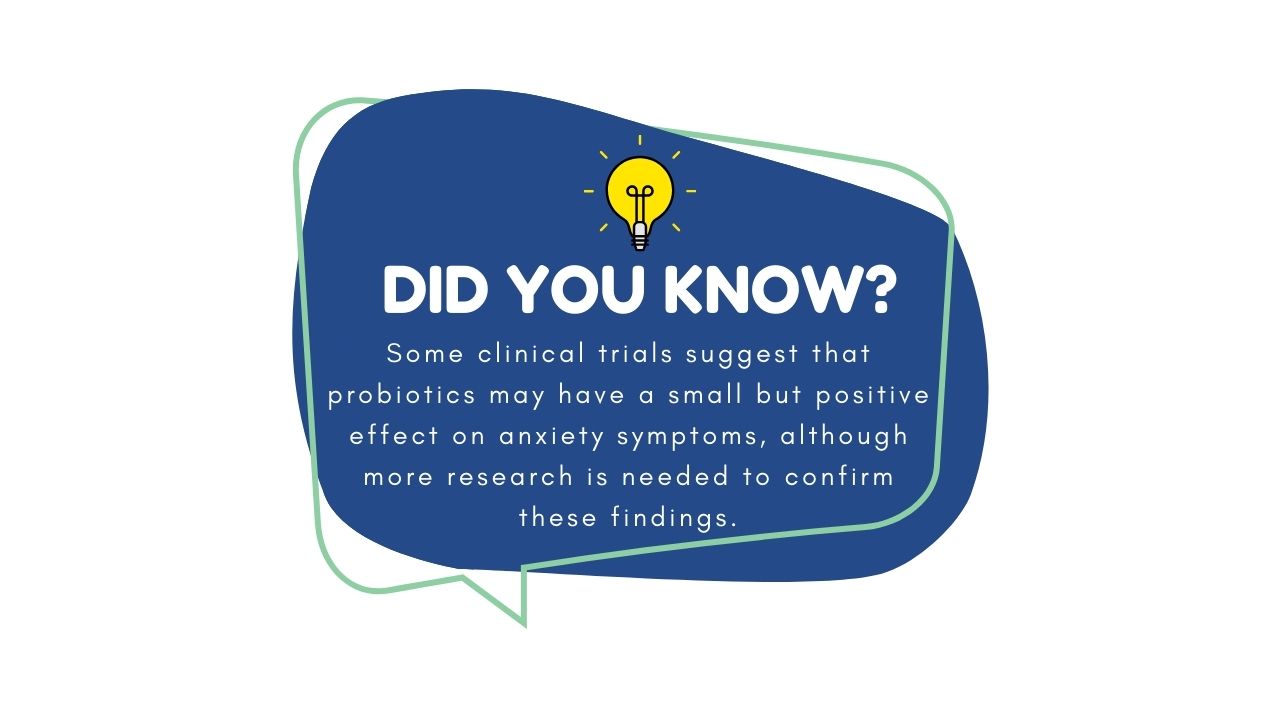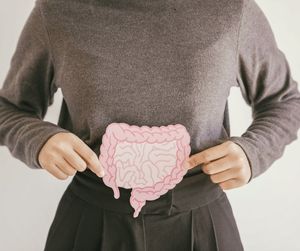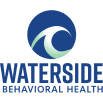Anxiety is a widespread and multifaceted mental health condition that affects millions of people worldwide. It goes beyond occasional stress or worry, often manifesting as persistent feelings of fear, unease, and physical symptoms like rapid heartbeat, digestive issues, and fatigue. Recent research has highlighted the strong connection between anxiety and gut health, showing that the gut microbiome plays a crucial role in regulating mood and stress responses. When gut bacteria are imbalanced, it can contribute to heightened anxiety levels, digestive discomfort, and even long-term mental health challenges.
However, anxiety is treatable, and individuals who seek the right help can recover and regain control over their lives. At Waterside Behavioral Health, we provide comprehensive mental health treatment programs in Massachusetts, including Cognitive-Behavioral Therapy in Massachusetts (CBT), Dialectical Behavior Therapy in Massachusetts (DBT), and Trauma Therapy in Massachusetts to help individuals overcome depression and find lasting relief.
This guide will explore the connection between gut health and anxiety, along with lifestyle changes that can support the healing process.
Gut Health and Anxiety: Understanding the Critical Connection Between Your Microbiome and Mental Wellbeing
Have you ever noticed that your stomach feels uneasy when you’re anxious? This isn’t just a coincidence. The connection between your gut and your mental health is stronger than you might think.
Research shows that the bacteria in your digestive system can influence your mood and anxiety levels through what scientists call the gut-brain axis. This communication pathway allows your gut and brain to send signals back and forth, affecting how you feel both physically and emotionally.
What you eat matters too. Foods high in fiber, probiotics, and omega-3 fatty acids support a healthy gut microbiome. When your gut is balanced, your body can better manage stress responses and potentially reduce anxiety symptoms.
Key Takeaways
- The gut and brain communicate continuously through a complex network that affects both digestive function and emotional well-being.
- The balance of bacteria in your digestive system plays a significant role in regulating stress responses and anxiety levels.
- Regular consumption of fiber-rich foods, fermented products, and other gut-friendly nutrients can help improve both gut health and anxiety symptoms.
Understanding the Gut-Brain Axis
The gut and brain communicate through complex pathways that influence both physical and mental health. This connection helps explain why digestive issues often accompany anxiety disorders.
Biological Pathways
The gut-brain axis functions through several communication channels. The vagus nerve serves as a direct physical connection, sending signals between the digestive system and brain. This nerve transmits information about digestive processes and can trigger stress responses.
Another pathway involves the immune system. When gut inflammation occurs, immune cells release molecules called cytokines that can travel to the brain. These cytokines may alter brain function and mood.
The enteric nervous system (ENS) is sometimes called the “second brain” because it contains 100 million neurons in the digestive tract. It can operate independently but constantly exchanges information with the central nervous system.
Bacteria in the gut also produce metabolites that enter the bloodstream and cross the blood-brain barrier, directly affecting brain chemistry.
Neurotransmitters and Hormones
Many key brain chemicals actually originate in the gut. About 95% of serotonin, a mood-regulating neurotransmitter, is produced in the digestive tract. Low serotonin levels are linked to anxiety and depression.
Gut bacteria also help produce:
- GABA – an inhibitory neurotransmitter that reduces neuronal excitability
- Dopamine – involved in pleasure and reward
- Norepinephrine – affects alertness and arousal
Stress hormones like cortisol impact gut function by altering blood flow, increasing inflammation, and changing the gut microbiome composition. This creates a feedback loop where stress affects digestion, and digestive problems increase stress.
The gut microbiome influences the hypothalamic-pituitary-adrenal (HPA) axis, which controls stress responses. An imbalanced microbiome may lead to abnormal stress reactions and increased anxiety.
Impact of Gut Microbiota on Mental Wellbeing
The microbes living in our gut communicate with our brain through several pathways, influencing mood and mental health. This connection, often called the gut-brain axis, plays a key role in how we feel emotionally and may affect conditions like anxiety.
Probiotics and Mental Health
Probiotics are beneficial bacteria that can improve gut health and potentially reduce anxiety symptoms. Research shows that certain probiotic strains, particularly Lactobacillus and Bifidobacterium, may help decrease stress hormones and improve mood.
In a 2016 study, participants who consumed probiotic yogurt daily for six weeks reported fewer anxiety symptoms compared to those who didn’t. The bacteria help produce neurotransmitters like serotonin and GABA that regulate mood.
Probiotic foods include:
- Yogurt with live cultures
- Kefir
- Fermented vegetables like kimchi
- Kombucha
Scientists believe these beneficial bacteria reduce inflammation, which is linked to both gut problems and anxiety disorders.
Dysbiosis and Anxiety Disorders
Dysbiosis occurs when harmful bacteria outnumber beneficial ones in the gut. This imbalance may contribute to anxiety disorders through several mechanisms.
When the gut microbiome is unhealthy, it can increase inflammation throughout the body, including the brain. This inflammation may alter brain chemistry and increase anxiety symptoms.
The gut produces about 95% of the body’s serotonin, a key neurotransmitter that regulates mood. An unhealthy gut microbiome can disrupt serotonin production.
Factors that contribute to gut dysbiosis include:
- Poor diet high in processed foods
- Chronic stress
- Frequent antibiotic use
- Lack of dietary fiber
Studies of people with anxiety disorders often show different gut bacteria compositions compared to those without anxiety. Treatments targeting gut health may become important additions to traditional anxiety therapies.

Dietary Influence on Gut-Brain Communication
What we eat directly impacts how our gut and brain talk to each other. The foods we choose can either support or disrupt this important connection, affecting both digestive health and emotional wellbeing.
Nutritional Psychiatry
Nutritional psychiatry examines how diet affects mental health through gut-brain pathways. Research shows that diets rich in processed foods may increase anxiety, while whole foods can improve mood.
Studies have found that people who eat a Mediterranean-style diet—high in vegetables, fruits, whole grains, fish, and olive oil—report fewer anxiety symptoms. This connection works through several mechanisms.
The gut microbiome produces neurotransmitters like serotonin and GABA that regulate mood. About 95% of serotonin is actually made in the gut, not the brain.
Key nutrients that support gut-brain health:
- Omega-3 fatty acids (found in fatty fish)
- Probiotics (in yogurt and fermented foods)
- Prebiotic fiber (in onions, garlic, and bananas)
- B vitamins (in whole grains and leafy greens)
Anti-Inflammatory Foods
Chronic inflammation in the gut can disrupt the messages sent to the brain, potentially triggering anxiety. Anti-inflammatory foods help maintain this communication system.
Top anti-inflammatory foods for gut-brain health:
- Fatty fish (salmon, mackerel)
- Colorful berries (blueberries, strawberries)
- Leafy greens (spinach, kale)
- Turmeric and ginger
- Olive oil
These foods contain antioxidants that fight oxidative stress in both gut and brain tissues. Polyphenols in berries and green tea specifically support beneficial gut bacteria.
Sugar and refined carbohydrates, by contrast, can feed harmful bacteria and trigger inflammation. Even short-term dietary changes can alter gut bacteria composition within 24-48 hours.
Regular consumption of fermented foods like kimchi and sauerkraut has been shown to reduce inflammatory markers and improve anxiety symptoms in clinical studies.
Strategies for Improving Gut Health to Alleviate Anxiety
The connection between gut health and anxiety can be addressed through specific lifestyle changes and targeted supplementation. These approaches work together to restore gut balance and potentially reduce anxiety symptoms.
Lifestyle Modifications
Diet plays a crucial role in gut health. Focusing on fiber-rich foods like vegetables, fruits, and whole grains helps beneficial bacteria thrive. These foods contain prebiotics that feed good gut bacteria.
Reducing processed foods, sugar, and artificial sweeteners is equally important. These substances can disrupt gut flora and worsen inflammation linked to anxiety.
Regular physical activity improves gut motility and diversity of gut bacteria. Even 30 minutes of walking daily can make a difference.
Stress management techniques directly impact gut function. Practices like meditation, deep breathing, and yoga can reduce stress hormones that disrupt digestion.
Key practices to implement:
- Eat fermented foods (yogurt, kimchi, sauerkraut)
- Stay hydrated with 6-8 glasses of water daily
- Establish consistent sleep patterns
Psychobiotics and Supplementation
Psychobiotics are specific probiotics that may positively affect mental health. Research shows strains like Lactobacillus acidophilus and Bifidobacterium longum can help reduce anxiety symptoms by influencing gut-brain communication.
Probiotic supplements should contain multiple strains and at least 1 billion CFUs (colony-forming units) per serving. Quality matters more than quantity.
Prebiotic supplements feed beneficial bacteria. Common options include inulin, FOS (fructooligosaccharides), and GOS (galactooligosaccharides).
Omega-3 fatty acids reduce gut inflammation and support brain health. Sources include fish oil supplements or foods like fatty fish, walnuts, and flaxseeds.
Discuss with healthcare providers before starting:
- Specific strains based on symptoms
- Proper dosage for individual needs
- Potential interactions with medications




